Antoine Fuqua’s take on The Magnificent Seven occupies an odd position in the context of contemporary cinema’s overreliance on remakes and reboots in that it sets out to revive a stagnant genre by creating something thoroughly unoriginal. What’s surprising here is the film’s very lack of originality almost becomes a virtue. Like a filmic game of telephone (maybe the filmmakers misunderstood the concept of Moviefone?), this film reinterprets the previously reimagined — and it loses the impact of its source material in the process. That said, there’s still something of value in this latest incarnation of a familiar story. While it may not revolutionize the form in the same sense as the revisionist Westerns that have dominated recent decades, director Antoine Fuqua and writers Nic Pizzolatto and Richard Wenk have done something noteworthy by returning the Western to its cartoonishly simplistic roots. And, in so doing, they’ve reclaimed the joy of the genre.
While Fuqua manages his shootout sequences and anamorphic landscapes with admirable style, his film is far from groundbreaking, representing little more than an updated homage to the 1960 Yul Brynner-Steve McQueen vehicle of the same name. The problem is that both “westernized” versions of the film compare unfavorably to their true source material, Akira Kurosawa’s masterful Seven Samurai (1954). It’s difficult to avoid such comparisons, and saddling Kurosawa with a story credit certainly doesn’t do this script any favors.
Beyond the occasional pithy one-liner, the screenplay is more Wenk (Expendables 2) than Pizzolatto (True Detective). To the extend there’s much Pizzolatto in this film, it’s closer to the second season of True Detective than the first. As this assertion would imply, much of the characterization is shallow, and the ethnic diversity of the central cast functions as a superficial nod to postmodern progressivism rather than as a narrative necessity. Yes, it’s great to see an ensemble more representative of real-world demographics, but the whole enterprise comes across as contrived and little more than self-conscious pandering. The pacing is problematic in places, as is the overall structure, and the film could easily trim off 20 minutes and work equally well. Add in some awkwardly anachronistic political statements trying to make the film socially relevant to current audiences, and you get a script with significant issues. But what Wenk and Pizzolatto do manage particularly well is the efficient establishment of exposition, making room for the prolonged action sequences that constitute this film’s saving grace. Nevertheless, it’s disappointing to see a talent of Pizzolatto’s caliber writing down to the level of his partner.
Where the film does work is in its solid cast and its unquestionable chemistry. Denzel Washington seems preternaturally predisposed to cowboy casting, with his lamb chops almost certainly an intentional reference to Fred Williamson’s look in Jack Arnold’s 1975 blaxploitation Western Boss N—-r. Chris Pratt’s repartee with Washington is a highlight (even if he’s no substitute for Toshiro Mifune). Ethan Hawke and Vincent D’Onofrio both make some perplexing performance choices — Hawke doing his best impression of Val Kilmer in Tombstone (1993) and D’Onofrio affecting a strange sort of Andy Devine lilt — but these foibles become less obtrusive as the film progresses. Peter Sarsgaard does a bit too much eye-acting, but is otherwise suitably menacing as the film’s robber baron villain showing shades of Trumpian psychology. Haley Bennett very nearly pulls off a compelling turn as the film’s sole female protagonist, but the script doesn’t quite give her enough room to breathe. Byung-hun Lee and Martin Sensmeier are similarly underserved, delivering standout performances in marginalized roles.
As was the case with its predecessors, Fuqua’s Magnificent Seven works best when its emphasis favors group dynamics in tense situations. As the third telling of a solid story, it may represent the law of diminishing returns as applied to creative works. But, taken on its own merits, it’s a fun genre effort that doesn’t stray far off target. It may not reinvent the wagon wheel, but it doesn’t need to be lashed to one and beaten either. Rated PG-13 for violence, some language and suggestive material.
Now playing at Carolina Cinemark, Regal Biltmore Grande, UA Beaucatcher, Epic of Hendersonville


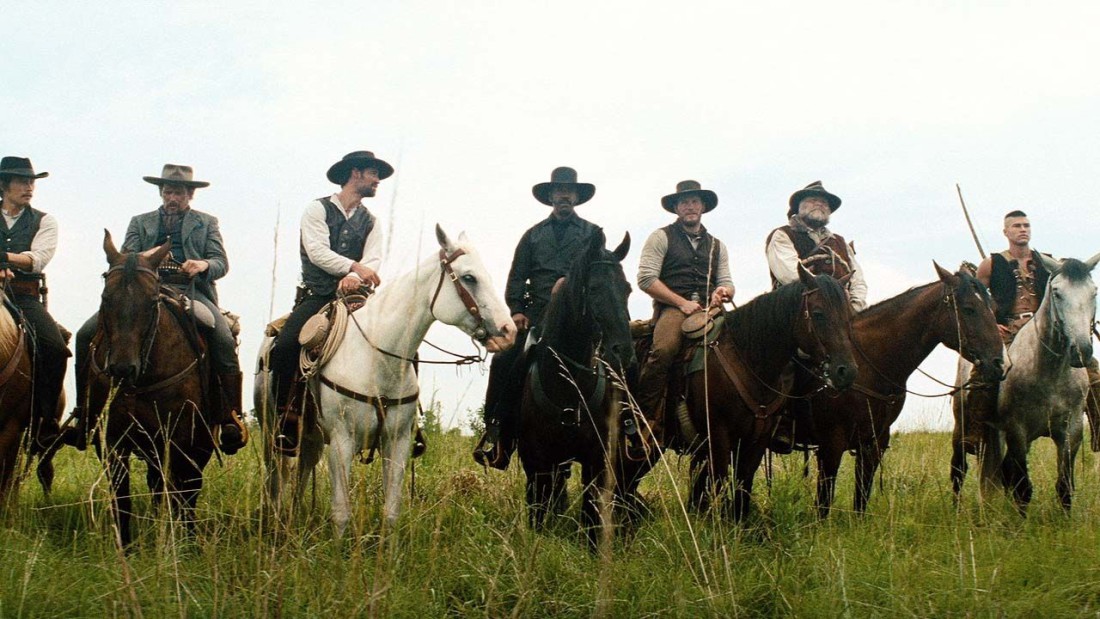
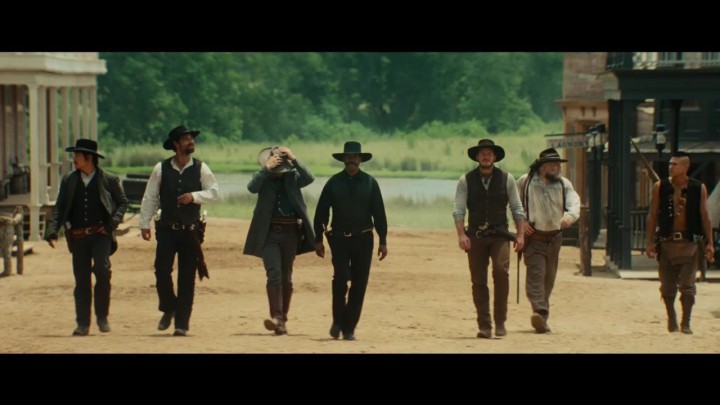
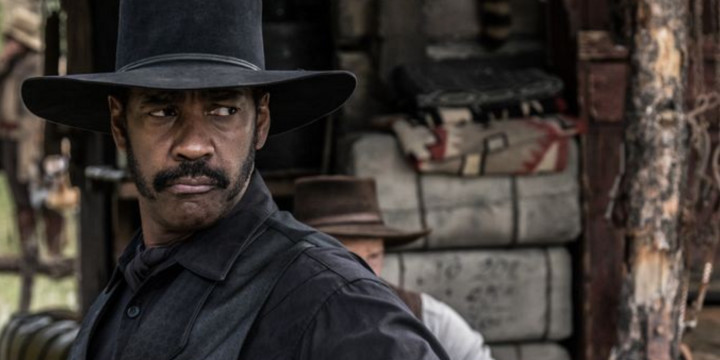
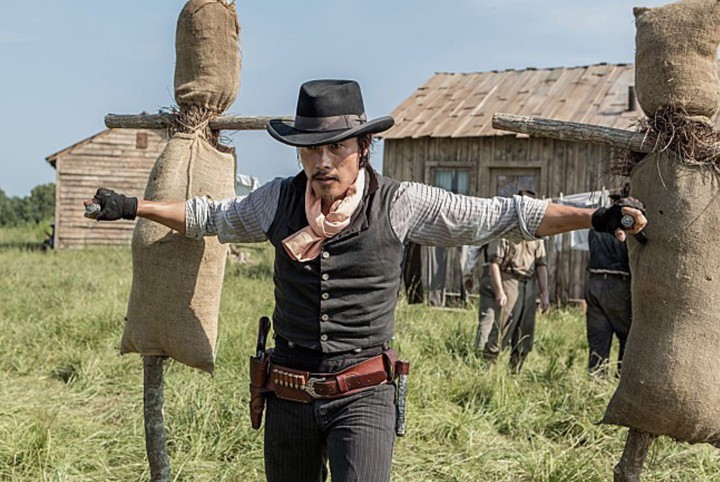
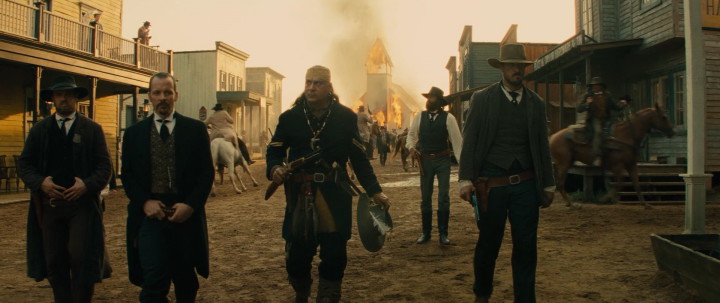
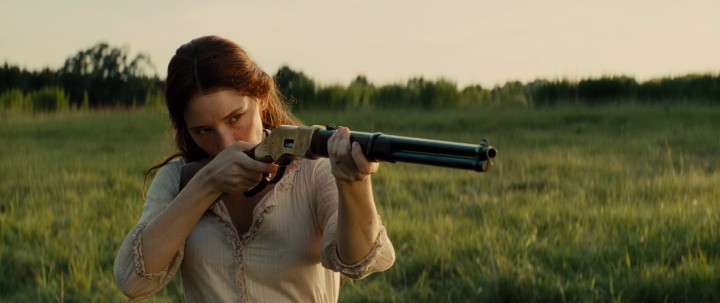
Before you comment
The comments section is here to provide a platform for civil dialogue on the issues we face together as a local community. Xpress is committed to offering this platform for all voices, but when the tone of the discussion gets nasty or strays off topic, we believe many people choose not to participate. Xpress editors are determined to moderate comments to ensure a constructive interchange is maintained. All comments judged not to be in keeping with the spirit of civil discourse will be removed and repeat violators will be banned. See here for our terms of service. Thank you for being part of this effort to promote respectful discussion.